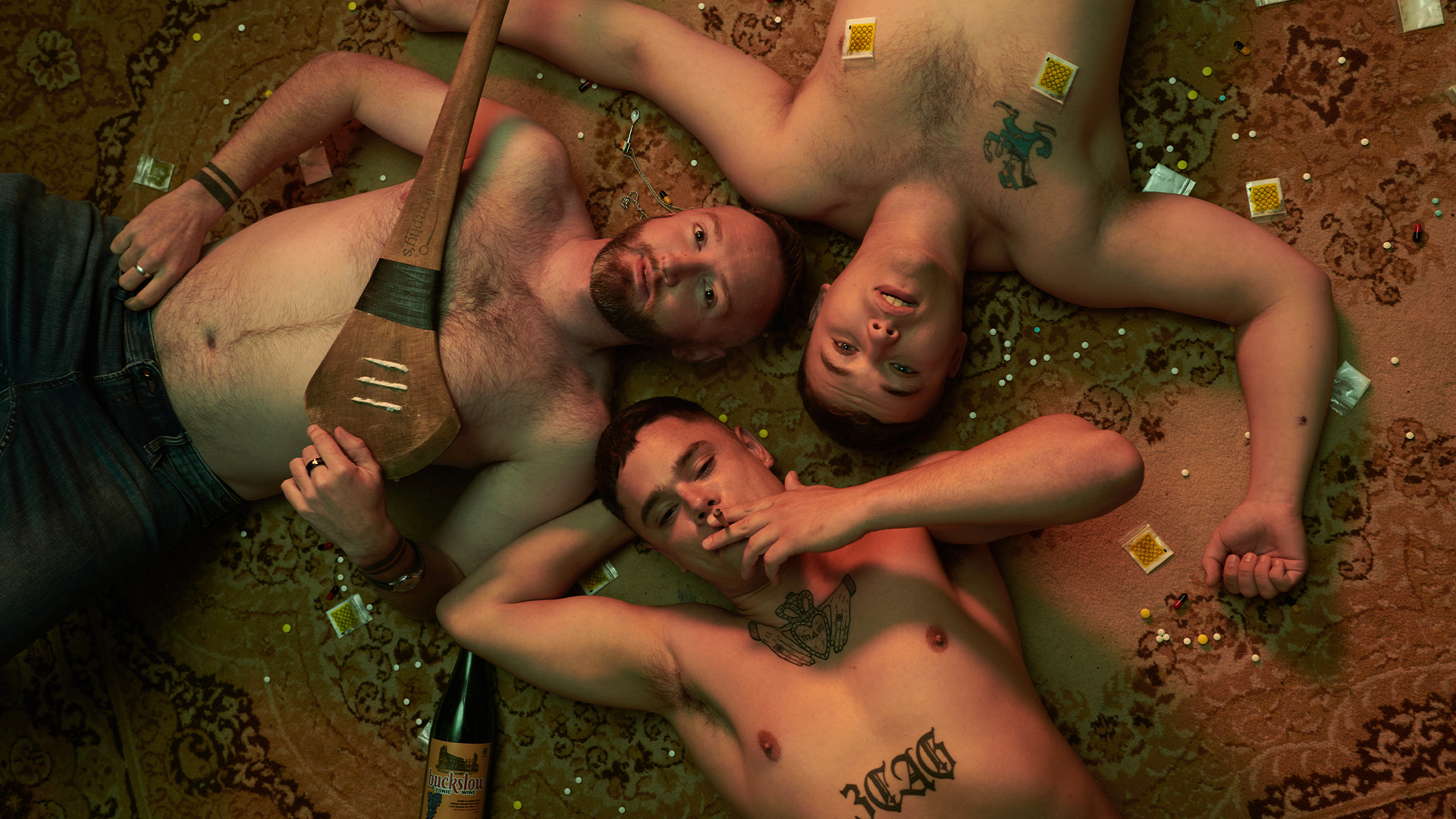Kneecap captures a rebellious, decolonising, and hilarious hip-hop energy
The most provocative, drug-laced, anti-authoritarian movie that’s also about… language revitalisation?

Irish-language hip hop trio Kneecap play themselves in the story of their formation and scraps with authority. Steve Newall is impressed by the most provocative, drug-laced, anti-authoritarian movie you’re likely to see that’s also about language revitalisation.
Whether you’ve heard of Belfast hip hop group Kneecap or not, the charms of this biopic will remain undiminished. Rappers Mo Chara and Móglaí Bap are still young fellows (former schoolteacher DJ Próvaí a slightly less-young fellow), so this film based on their life isn’t a Straight Outta Compton-style career retrospective. Indeed, Kneecap’s first single was only released in 2017, their debut album in 2018, and its follow-up just this year. So, rather than turning the clock back with familiar rise and fall structure, Kneecap the film depicts their first act: a fascinating look at the formation of the group, the circumstances they came from in Belfast, and how their championing of the Irish language in their lyrics captured people’s imagination.
Rapping in Irish, an act that carries defiant political undertones, their debut single C.E.A.R.T.A. featured sentiments like: “No chance at all they’ll get my bag of MD / Because I have a party tonight and the RUC aren’t welcome” (as goes a rough English translation). Elsewhere in just that song alone, there are references to buying a big bag of ketamine instead of paying rent, doing coke, selling coke (and speed and marijuana), and masturbating to your mother’s Facebook page. In other words, Kneecap are foul-mouthed, big-boasting wasters—and funny as fuck.
This gives you a feel for the tone of this film about their formation and Kneecap’s first brushes with controversy and popularity. The three members play themselves—Mo Chara/Liam Óg Ó Hannaidh, Móglaí Bap/Naoise Ó Cairealláin and DJ Próvaí/JJ Ó Dochartaigh), which lends enormous verisimilitude to proceedings, especially with an English director (Rich Peppiatt) at the helm. Somehow it all works, harnessing a punk, decolonising energy that speaks to the present and future as Kneecap challenge the past.
“It made no sense in a way to be making a biopic about a band that’d never released an album, weren’t signed to a record label, rapping in a language that no-one spoke,” Peppiatt told the Orange County Register. While Kneecap the film lives up to that challenge, its focus on this emerging group gives audiences in the present something powerful to latch on to.
For those of us living in countries where colonisers attempted to eradicate Indigenous culture and language as the English did in Ireland, Kneecap takes on a deeper resonance. Stories of disaffected youngsters embracing their culture and using it to express themselves aren’t new—but this has got to be the most provocative, drug-laced, and funniest anti-authoritarian movie you’re likely to see that’s also about language revitalisation.
Here in Aotearoa, we will find familiar elements in this story of cultural pride and the group’s (initially) unwelcome pro-Irish language musical stance. But beware, you may also acquire the desire to snort prodigious lines and mouth off at the peelers (cops). Oh well, that just makes for an even more fun take on celebrating Indigenous culture.
It’s scrappy, it’s imperfect, and the three members of Kneecap have varying levels of screen presence—but Kneecap is something special. It’s another highly entertaining chapter in the long history of hip-hop as a vehicle for cultural expression and speaking to power (even if it’s about your sister’s [redacted]).

























